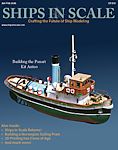Thank you Russell.
France in the 18th century, was four times more populated than the United Kingdom with a per capita income of the same order as the UK, an equivalent level of technology and, although it is not an island, has more than 5000 km of coastline (excluding overseas possessions) and is therefore a maritime country.
The question we can legitimately ask ourselves is what explains why we got left behind.
A first explanation is the waste of resources by the state and the nobility in pomp and ceremony.
Did you know that the only costume worn by Catherine de Medici, Queen Mother, at the wedding of Mary Stuart with the future King of France in Paris in 1558, cost as much as the annual budget of the British Kingdom at the same time, and there were hundreds of guests just as richly dressed! I am not quoting this anecdote by chance because it was during the reign of Elizabeth first that the English conceived the strategy of conquering the control of the seas. What they took a century to do.
The necklace that Marie Antoinette was offered by Cardinal de Roan cost the price of a first level front-line ship and I am not talking about the infinitely higher sums spent on the construction, maintenance and celebrations of the Palace of Versailles.
Thus, for two and a half centuries (from the second half of the 16th to the end of the 18th century), the more industrious Bretons invested in the economy and the navy while the French nobility and the state wasted the country's resources on luxury and festivities.
This is reflected in the warships. French ships were much more decorated than their british equivalent. English sailors of the time said that French ships were made up like prostitutes. The money spent on unnecessary pomp and pageantry was as much that was no longer available to build other ships.
Another explanation is that the United Kingdom is an island and did not need to develop a large permanent army, which allowed it to have a larger budget for its navy.
This need to dominate the seas which was initially military, preventing Spanish and French troops from invading Great Britain (Great Armada) was also economic, protecting the sea routes.
This is how a small kingdom (we didn't yet speak of a country at that time) became in the 19th century the biggest world power. Hats off!
You'll tell me that all has not been negative for the French, we still have the luxury industry from these sumptuary expenses ... but it's expensive to pay for it ....






